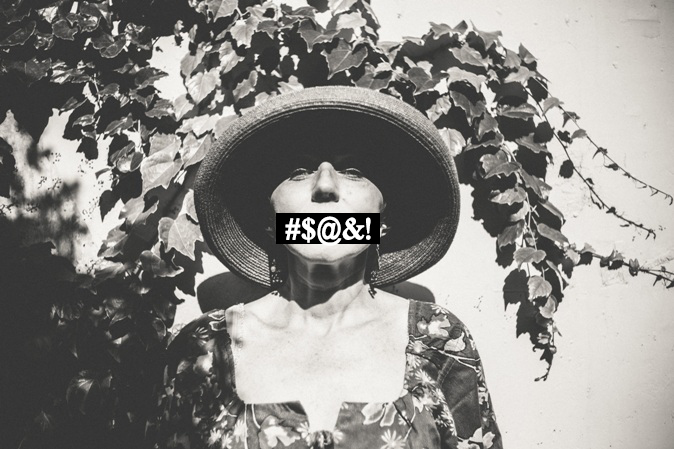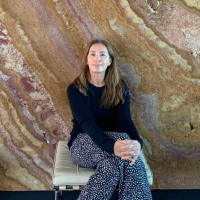
“Your children are not your children. They are the sons and daughters of Life’s longing for itself. They came through you but not from you and though they are with you yet they belong not to you.” ~ Khalil Gibran
I approached motherhood like I did all of my other projects: with discipline, diligence, focus and full of intention to succeed.
Until I became a mother, life seemed to be going in the direction that made sense to me, rather according to my expectations. It gave me a sense of being in control and assurance that the results achieved were in proportion to the effort put in.
There were a few confusing years when I could not get pregnant exactly the moment I wanted to, but when I did finally succeed I attributed it to my not giving up on that project.
I did not realize then that life was giving me a taste of reality.
With my usual enthusiasm when tackling a new project, I eagerly read all I could find on pregnancy, birth, diapers, breastfeeding, how to develop the baby’s brain, how to raise successful children and much, much more. I chose to stay at home to raise my children, because I needed to concentrate all of my resources to achieve perfect results. I felt rather confident and well-equipped to rise to this new challenge.
The first cracks in my tightly controlled world appeared quickly. It was not the sleepless nights, nor the gripping fear of breaking the newborn baby. It wasn’t even the all-consuming sense of responsibility for this human life that shocked me.
I was completely unprepared for how early my daughter started manifesting her very strong character, which was mostly expressed as a refusal to do what was expected of her. Sleeping was always a problem, eating was a constant fight, and before the ripe age of three she refused to put on the clothes I had chosen for her. At that young age she was already challenging my authority to make decisions for her. Who told her she even had a choice?! Having been a parent-pleasing child myself, I was convinced that good children do not defy their mothers.
Similar trouble continued with the younger generation. The twins refused to keep to the same sleeping schedule and took turns in defying my food and fashion choices. They quickly started forming their own opinions and, most unexpectedly and way too early, expressed those without any hesitation. Appallingly, their opinion rarely coincided with mine. I referred to my own childhood in the Soviet Union—with minimal choice and omnipresent censorship—with nostalgia.
The girls kept growing and growing out of control. They proceeded with their milestones. Soon those led to wanting to pierce their ears, then a second hole per ear, then to wear nail polish, then black nail polish, then makeup, then ripped jeans, then going out at night.
As my daughters became teenagers, some of those rebellions stopped being funny or even mildly amusing. It brought out all of my doubts and fears about me, about them, about the world we live in. Until one particularly scary rebellion brought me to confront one very simple fact: I have no control. I cannot hide them under my wing nor protect them forever. I cannot prevent them from living the lives they were born to live.
All this, and the fact that my own life was no longer going according to a perfect plan, led me to a personal crisis. I had no idea how to live with the imperfect me. For the first time my girls saw me cry—all the time. I struggled. They saw it. I had no strength to hide it. It was frightening for me. It was frightening for them.
In the lowest moments, when all I wanted was to disappear and stop the pain, it was that same all-consuming sense of responsibility for my daughters that kept me afloat. I had to get up every morning, face them, feed them and deal with this life, as imperfect as it seemed to me then. I understood that what I’d choose to do with it would send them a powerful message of truth about life and an example of how to react to it. It became clear that giving up was not an option.
I searched for help from any source that became available to me. I learned that as a mother I am just a vessel that brings life into this world. I also learned that every relationship is our mirror. My daughters, while different from each other, are all sides of me—the good, the bad, all of it. I also learned to accept the fact that I am not perfect, that my children are not perfect, and that it is okay.
Something incredible happened when I let go of my need to control. The girls started reacting to me differently. I am not sure how to describe that change. I think it has something to do with respect. It was not easy for me to accept my humanity, my weaknesses, my imperfections. But as I started accepting those things in myself, I became more forgiving and accepting of my daughters and all of their wonderful imperfections and differences. My daughters, in turn, saw in me not the superwoman that I always tried to be, but someone to whom they could relate. Our conflicts have turned into dialogues and expressions of love and support, from me to them and from them to me.
I also realized that the best part about my girls is that they do not fit into any mold. Due to the strength of their characters and the fact that they, contrary to me, were raised in the free world, they had resisted my iron will to make them into perfectly polite little dolls. Their beauty lies in the fact that they are different from each other and from me, and their strength comes from being true to their own nature. They have reminded me that one of the most important things we have access to in life is freedom of choice and an uncensored voice.
Most importantly, motherhood finally made me understand what it is to love unconditionally.
I let go and release them into this world full of chaos and magic. In them, I release tiny pieces of me and of all that came before me. They will learn their own lessons, but I hope that they will always carry with them the one and unshakeable truth: I love them exactly the way they are.
Author: Galina Singer
Image: Angelina Litvin/Unsplash
Editor: Emily Bartran
 Share on bsky
Share on bsky





Read 2 comments and reply